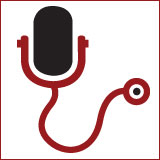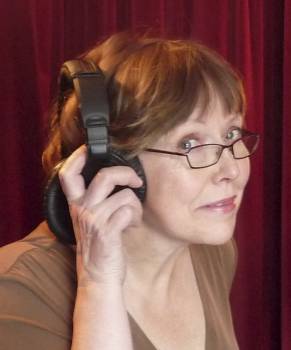|
VOCAL HEALTH - Part 1 Two Lumps In My Father's Throat Led To This Quick Course In Vocal Health  By
Elizabeth Holmes By
Elizabeth Holmes
Voice Actor & VOXtra Staff Editor For those of us who depend on our voices for a living, itís obvious why vocal health matters. Without a reliable "instrument,Ē we simply canít perform. But letís face it Ė most of us take our miraculous instruments for granted. Yes, we take precautions to avoid getting knocked out by colds. Most of us also have a few home remedies on hand for occasional sore throats, congestion, and other uncomfortable symptoms. But we usually donít pay much attention to our vocal health Ė until something goes wrong. Recently, I discovered how little I actually knew about my own vocal health when I found myself making multiple trips to the otolaryngologistís (throat doctorís) office. My aging father needed medical care for not one, but two, lumps on his throat. They turned out to be benign (thank goodness!), but the upshot of weeks of doctorsí visits, and all of those diagnostic tests, was that I got a crash course in how to keep my own voice healthy, and warning signs to watch out for. DO'S & DON'TS FOR HEALTH What are the basics of vocal health? The University of Michigan Vocal Health Center provides a wealth of helpful advice: Stay Hydrated! Drinking water helps keep your voice in great shape. How much water should you drink? The U of Mís formula is:
Avoid Shouting! Vocal cords are delicate tissue. When they bang together repeatedly, nodes and nodules can form at the contact points (thickening those spots, sort of like calluses). While itís possible to have these growths corrected surgically, an ounce of prevention saves a pound of cure.
Need we say more? Do Gentle Warm-Ups This is advised before you use your voice for long periods of time. Most people automatically hum "Happy BirthdayĒ at their natural mid-range tone.
Get plenty of physical exercise. And have good breath support for vocal performances:
Your body needs time to repair. Give it the rest it needs. STILL HAVE A PROBLEM? Most of this is common sense and supports your health in other ways, as well. So, what happens if you follow all of this good advice, and you still have problems with your voice? Well, that's the subject of future articles in this series. We talk about:
See Part 2: First Step To A Cure: Admit You Have A Problem. What Mary Found ... ABOUT ELIZABETH ...  Author Elizabeth Holmes is a voice actor, writer and audiobook narrator based in Healdsburg, CA.
She is also editor of VoiceOverXtra's eBook division. Author Elizabeth Holmes is a voice actor, writer and audiobook narrator based in Healdsburg, CA.
She is also editor of VoiceOverXtra's eBook division.Email: Elizabeth@HolmesVoice.com Web: www.HolmesVoice.com |
As of the NEW website launch, 03/22/2012


.png)







Sincerely,
Bettye Zoller Seitz
VOICESVOICES LLC
So people should be aware of this. He also said there are a lot of myths spouted as truths about drinking water, for example a person should drink 8 to 10 glasses of water a day is a famous urban myth. What is true, is that if a person eats fruits and vegetables for example, they are getting water. It's hard to imagine that humans would have made it to the 21st century having to compensate for a water deficiency. It's just urban myth. Eat a normal diet. You'll be fine.
I also found iit interesting that the your article says "Don't smoke", but a few sentences later says "Limit your alcohol intake." Alcohol is VERY bad for vocal cords in any amount. Alcohol is also a drug that kills. So why do you say "DON"T smoke," but LIMIT your alcohol? Is it because alcohol is socially acceptable, and smoking no longer isn't? While smoking isn't pleasant, alcohol sucks. Period. No matter how pretty the bottles are, alcohol is as bad as any cigarette.
Alcohol is responsible for more deaths, more car accidents, it causes homelessness, joblessness, domestic violence, embarrassment, makes it hard to hold a job, causes alcoholism, depression, weight gain, diabetes, cancer (even if you drink a "safe amount.") Smoking might smell bad, and be "annoying" but not as much as this public perception that alcohol is perfectly fine in moderation. Alcohol is very bad. Make no mistake. To be fair it should be either "limit your smoking and limit your drinking" or "don't drink and don't smoke." Not "Don't" Smoke, but "Limit" your alcohol.
Thank you.